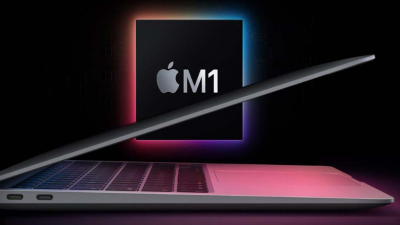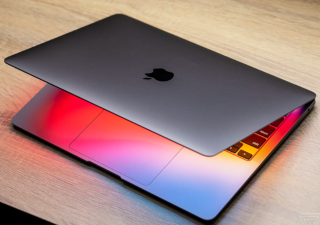On June 10, at the 2025 Apple Worldwide Developers Conference (WWDC25), Apple announced that macOS Tahoe 26 will be the last generation of operating systems to support Intel chip models, and macOS 27 will no longer be supported. This is also analyzed by the outside world as Apple completely abandoning Intel chips after this.
On June 10, at the 2025 Apple Worldwide Developers Conference (WWDC25), Apple announced that macOS Tahoe 26 will be the last generation of operating systems to support Intel chip models, and macOS 27 will no longer be supported. This is also analyzed by the outside world as Apple completely abandoning Intel chips after this.
Apple's self-developed chips are the result of comprehensive considerations such as supply chain control and strengthening its own product differentiation competitive advantages. Now self-developed or co-developed chips have become a common choice for industry giants. In this context, Intel may face the loss of more partners, and the cooperative competition situation in the chip industry will be more complicated than before.

First of all, to answer this question, must we know when Apple decided to take this path? I'm afraid only Apple knows the most accurate time, and most of our ideas are just speculation. So why did Apple decide to abandon Intel and use its own ARM-based chips (M series)?
- Intel has repeatedly failed to deliver on its promises, and has made very slow improvements that do not meet Apple's needs (it failed to reach the 3 GHz speed promised to Apple)
- Intel's chips on the market have serious quality issues (in 2018, it was revealed that Intel chips were found to have very serious security vulnerabilities inherent in the chips themselves. These vulnerabilities are called Meltdown and Spector) and previous defects (heat dissipation, power consumption)
- Intel has lost its competitive advantage in manufacturing (the M1 chip in the Mac uses 5-nanometer transistors)
- Intel chips are expensive and have high profit margins
- Apple's ARM-based chips have already reached or exceeded the best single-core performance and efficiency provided by Intel in terms of performance
- Apple has the ability to develop its own chip production, and the chips are better and more cost-effective than those from Intel (one-third of the power consumption has achieved a 2 to 3 times speed increase)
- Apple's entire product line is based on the same architecture, which makes it easier for Apple to get a consistent experience on all its products (after migrating to ARM, Apple's PCs, tablets, mobile phones, set-top boxes, watches, etc. will have the same CPU Architecture)

So what are the downsides to this shift?
For Apple, there are almost no downsides to switching from Intel to ARM-based chips, except for royalties (paying ARM royalties for chip design). Now that Apple's own chips have reached comparable performance to Intel (except at the high end), there are certainly some advantages to ditching Intel:
- Tighter control over chip design: You can accurately determine the performance of each processor and each product, thereby squeezing out more performance
- Better supply chain flexibility: You can change chip suppliers as needed
- A unified core software stack across all devices
- Higher profit margins: Imagine if you were using an Intel Mac, even if the computer still works fine, it would now feel outdated
When it comes to Apple's customers, there will indeed be a lot of restrictions:
If you think Apple machines are too restrictive, get ready for the next level. Now that Apple makes more hardware, customers will be held to a dead end. Think of the Soviet Union when Lenin was replaced by Stalin, and there will obviously be an impact on users:
- Hackintosh machines will become more difficult to build, because OSX will be able to more reliably verify whether the hardware is Apple's. OSX binaries released by Apple may contain instructions that are not even available in standard ARM platforms
- Running anything other than OSX in a Mac (natively) will be almost impossible
- Repairing and servicing Macs will be more difficult, because unregistered shops (such as Louis Rossman's) will have a harder time getting spare parts and a harder time understanding the circuitry of the machine.
- Many programs (3d modeling, video editing, etc.) are highly optimized for the x64 architecture. In order to achieve the same performance as now, they may need to be optimized for Apple's silicon chips (Apple's extension on top of ARM). This means that it will be difficult for developers to optimize software to work on more devices, and some features of the software may only be available on OSX
- The extremely strong product iteration speed will shorten the service life of each current Mac

